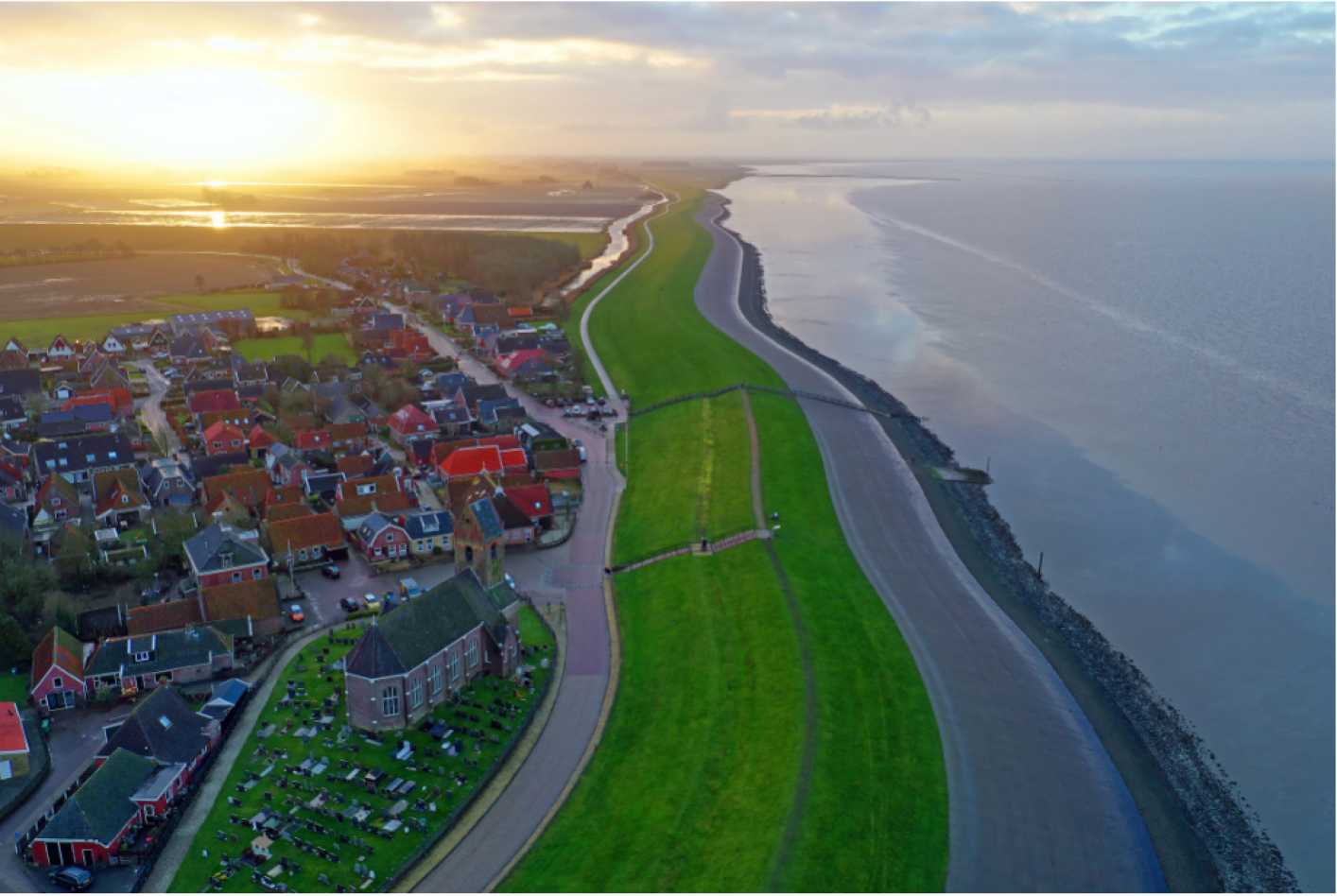
The Netherlands is having to deal with the consequences of climate change: more extreme temperatures, rising sea levels and more frequent and longer-lasting periods of heavy precipitation or, conversely, severe drought. This has implications for water safety and water availability, but also for vital infrastructure, agriculture and biodiversity. It means that space has to be made for dykes and water storage, among other things. At the same time, the Netherlands is on the cusp of a major transformation that will involve making spatial choices linked to the construction of hundreds of thousands of new homes, renewable energy generation, the increased sustainability of agriculture and the strengthening of nature and biodiversity. In this advisory project the Rli is asking whether the consequences of accelerated climate change and the increasing need for climate adaptation are being taken into account sufficiently in the spatial planning choices that will be made in the years to come.
The Council expects to issue its advisory report at the beginning of 2024.
Read more about the advisory report on ‘Climate adaptation and spatial planning’
For more information about the advisory report or to comment, please contact the project leader, Luc Boot, at luc.boot@rli.nl, or on +31 (0)6 1057 7495.